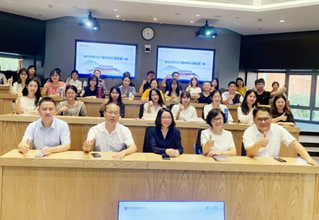Provision and Social-Economic Value of Crowdsourced User-Generated Content on Mobile Navigation Apps
主讲人:Ass. Prof. Chenhui Guo,Michigan State University
主持人:陈熹 教授,开云官方端网站登录入口
时间:2018年12月18日(周二)下午13:30-15:00
地点:浙江大学紫金港校区行政楼1417会议室
摘要:
Smartphone users adopt a variety of mobile apps, use social features, and engage in generating content as a public good in real time. Their adoption and use of social mobile apps contribute to crowdsourced user-generated content on the virtual community that probably lead to substantial social-economic value. Specifically, a mobile navigation app, Waze, enables users to: (1) initially generate traffic content (initial contribution via alert postings) in real time, (2) additionally amplify the content (feedback contribution via comments), and (3) collectively verify the content (confirmative contribution via thumbs-up) over time. We conduct two separate studies on the provision (user contribution) and economic value of crowd-generated content on the Waze community. Specifically, in the first study, we conceptualize two spatial and temporal factors, virtual crowdedness and physical crowdedness, and examines their roles in encouraging user contribution. The tension between audience effect and content saturation effect is explored to explain the impact of virtual crowdedness on the three types of user contribution. We analyze a panel dataset collected from Waze community in New York City. The findings suggest that the amount and type of user contribution are jointly affected by degree of virtual crowdedness and physical crowdedness. We further discuss practical implications on how app designers should visualize Waze users and improve the design of social features for encouraging user contribution to the mobile virtual community. While in the second study, we examine whether and how the contribution to crowdsourced content generates desirable effects on social-economic value by reducing duration of traffic jams in congested urban areas. To verify our hypotheses in both studies, we apply panel data spatial econometric models that account for spatial spillovers and area specific heterogeneity that may leads to substantial estimation bias. We show that social-economic value is achieved by user contribution that is effective in saving transportation costs. This study also discusses practical implications of mobile app design and policy on urban transportation.
主讲人简介:

“Julian” Chenhui Guo is an assistant professor of information systems at the department of accounting and information systems, Michigan State University. Before joining Michigan State, Dr. Guo received a Ph.D. (2016) in Management Information Systems with a minor in Economics from the University of Arizona. He also hold a bachelor of business administration degree from Zhejiang University, China (2010). Dr. Guo has broad research interests, including incentive design in online communities, social network analysis, and business analytics. His work has appeared in leading Information Systems journals and conferences, such as Information Systems Research, ACM transactions on MIS, Decision Support Systems, ICIS, WITS, WISE, CIST, etc. He is also the recipient of best paper award at CIST 2014. Since 2016, he has been teaching both undergraduate and master level business analytics courses at Michigan State University.
欢迎广大师生前来参加!






